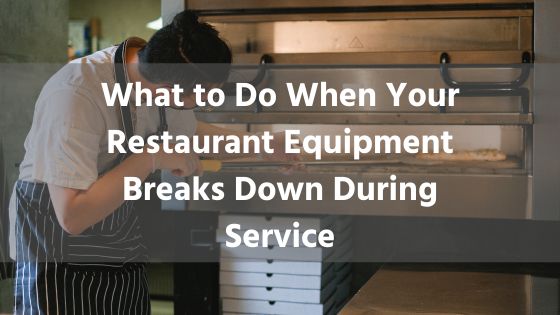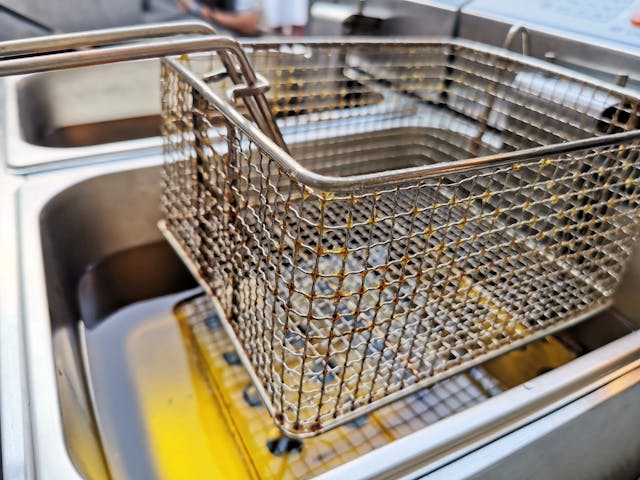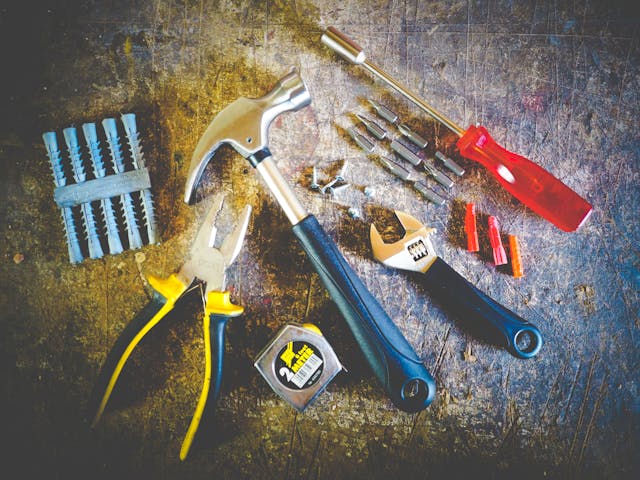Key Takeaways
- Restaurant equipment failures during service can be disruptive, but preparation and quick thinking can keep operations running.
- Clear communication, both with your team and customers, is critical to maintaining trust and minimizing impact.
- Partnering with reliable service providers, such as Greasecycle, and prioritizing preventative maintenance will reduce downtime and stress.

In the fast-paced world of hospitality, a sudden equipment failure during peak service can feel like a crisis. Whether it’s a malfunctioning fryer, a broken oven, or a failing refrigerator, these breakdowns can disrupt operations, delay orders, and potentially damage your restaurant’s reputation.
With the right preparation and response strategies, however, you can navigate these challenges effectively and keep service moving. Companies like Greasecycle specialize in helping restaurants manage these unexpected moments, ensuring your kitchen can recover quickly and safely.
LEARN MORE ABOUT OUR TRUSTED TEAM
1. Stay Calm and Assess the Situation
The first step when faced with equipment failure is to remain composed. Your reaction sets the tone for your entire team. If you panic, your staff will likely panic too, and that’s when mistakes multiply.
Start by prioritizing safety. If you see smoke, sparks, or suspect a gas or coolant leak, immediately shut off the power or gas supply. Evacuate the area if necessary and follow your restaurant’s safety protocols. Make sure all your employees know the proper food safety protocols and evacuation procedures.

Next, identify the problem. Determine whether it’s a complete failure or just a minor fault. Sometimes a tripped circuit breaker, loose plug, or overlooked maintenance task could be the cause.
Finally, assign responsibilities. Designate a reliable team member to update the front-of-house staff so they can communicate changes to customers. This clarity helps manage expectations and gives your service team time to adapt.
2. Implement Temporary Workarounds
While waiting for repairs, your goal is to keep the kitchen running as smoothly as possible.
Start by simplifying the menu. Remove dishes that rely on the broken equipment. If your fryer is down, swap out fried options for grilled or sautéed alternatives that use available appliances.
Make use of the tools you still have. If your grill is down but the oven is free, see whether certain grilled items can be baked or roasted. Creativity in the kitchen can often save the day.
Encourage the team to adjust workflows. For example, if cooking space is limited, prioritize high-demand items and adjust preparation order accordingly. A flexible, problem-solving mindset keeps productivity up despite the setback. Adjust your kitchen layout to fit the new menu by rearranging stations.
Above all, communicate with customers. Be upfront about menu adjustments or potential delays. Most diners will appreciate honesty paired with a well-prepared alternative more than receiving a dish that does not meet expectations.
FIND OUT MORE ABOUT COMMERCIAL WASTE DISPOSAL
(919) 817-6792 Commercial Waste Disposal & Processing
3. Know When to Call in Professionals
Not every equipment problem has a quick or safe in-house solution. If the issue poses a safety hazard, or if the appliance simply refuses to cooperate after basic troubleshooting of equipment repair, call in the experts.

Avoid attempting complicated DIY repairs during peak service hours. Not only could you make the situation worse, but you could also put staff and customers at risk.
This is where having a trusted repair partner is invaluable. Keep contact information for your preferred service provider readily available. A reliable company can mean the difference between hours and days of downtime.
When calling for service, be ready with details. Share the make and model of the equipment, describe the problem clearly, and mention any steps you have already taken to address it. This information can help technicians arrive prepared to fix the issue faster.
4. Learn and Plan Ahead
Once the immediate crisis has passed, take time to evaluate what happened and how it was handled.
Review the incident with your team. Identify which equipment failed, what caused the failure, and how the staff responded. This debrief can reveal both strengths to build on and weaknesses to address.
Update your emergency protocols based on what you learned. Document contingency plans for each essential piece of equipment, including the steps to take, who to contact, and available workarounds.
Prioritize preventative maintenance. Schedule regular inspections and servicing for all major kitchen appliances, and keep maintenance logs in an accessible location. Train team leads to recognize early warning signs, such as unusual noises, inconsistent temperatures, or reduced efficiency.
Finally, assess your vendor relationships. If your service provider was slow to respond or ineffective, consider switching to a more dependable partner.
5. Be Ready for the Next Time
In the restaurant industry, equipment failures are inevitable, but they do not have to cause chaos.

Start by training your team. Make sure every staff member understands the emergency procedures and their role during a breakdown.
Maintain open lines of communication so employees feel comfortable reporting equipment issues early. This allows you to address problems before they escalate.
Invest in high-quality, durable equipment whenever possible. While it may cost more upfront, reliability and reduced downtime make it a worthwhile investment.
And perhaps most importantly, remain calm under pressure. Your ability to stay composed will inspire confidence in your staff and reassure your customers that they are in good hands.
CONTACT US TODAY FOR MORE INFORMATION
Bottom Line
While equipment breakdowns can feel like a nightmare, they are also an opportunity to demonstrate strong leadership and resilience. By staying calm, creating effective workarounds, calling in trusted professionals, and preparing for the future, you can keep service on track and protect your reputation.
Companies like Greasecycle can play a key role in this process by helping restaurants maintain smooth operations even when the unexpected happens. In the end, it is not just about fixing the problem, it is about leading your team through it and coming out stronger on the other side.




